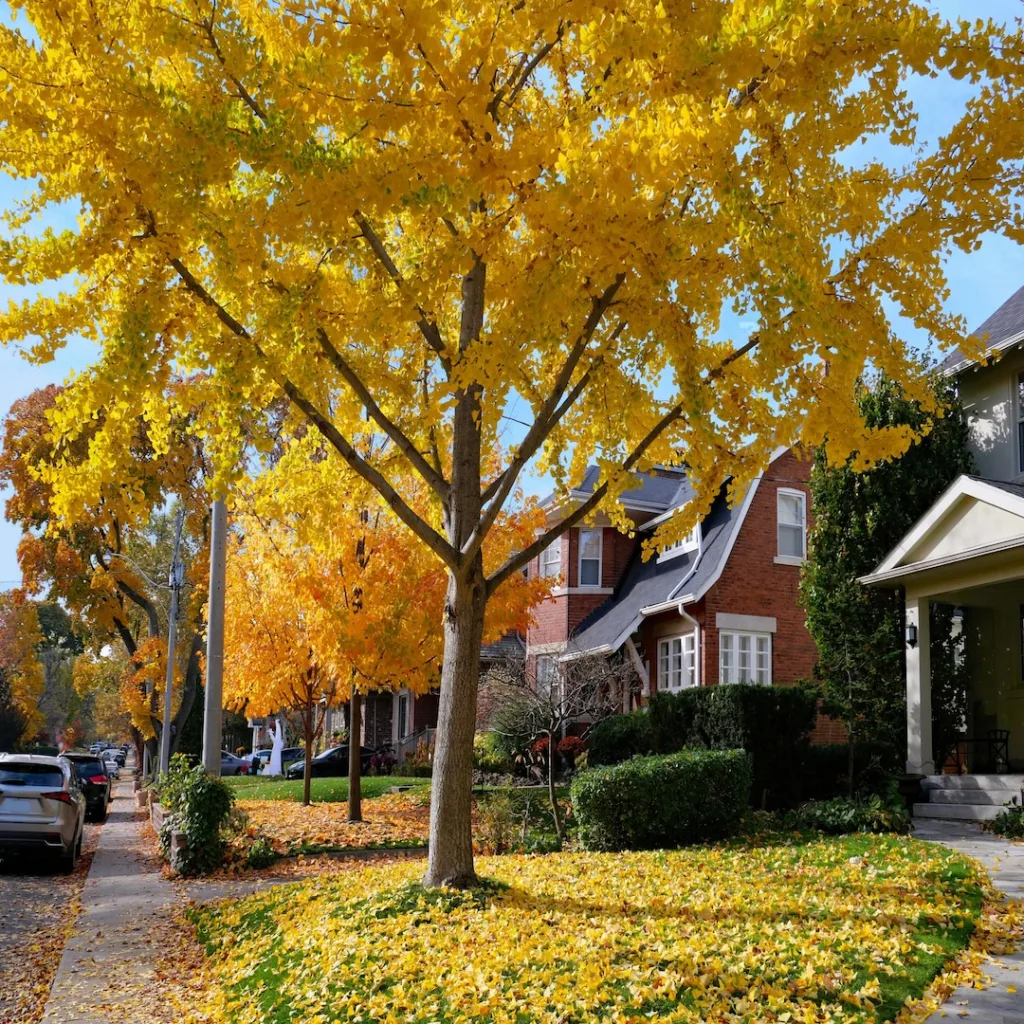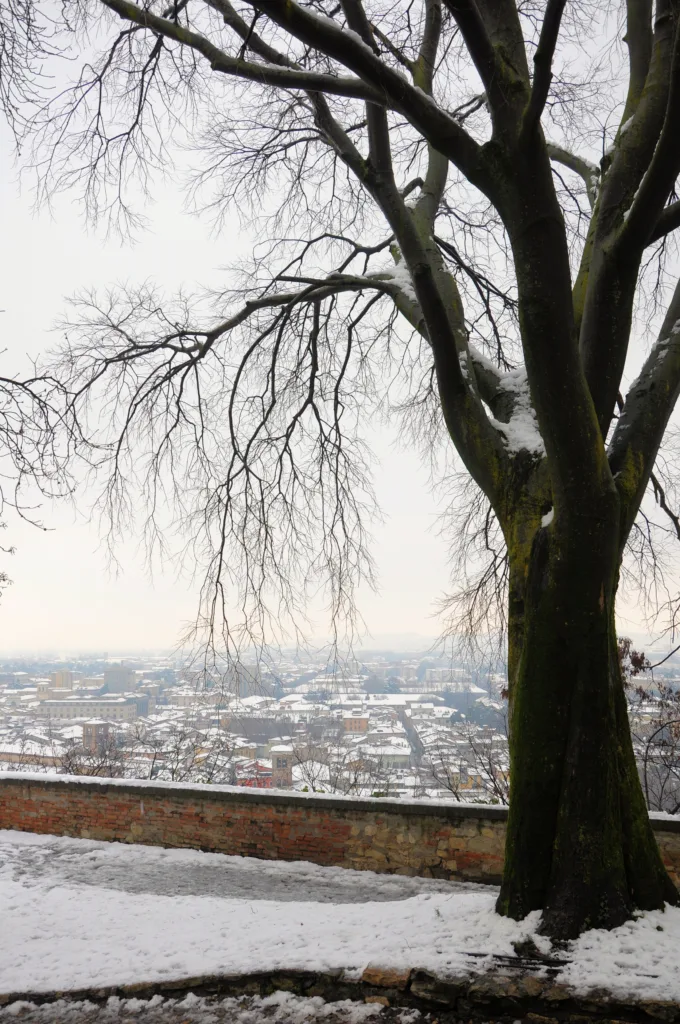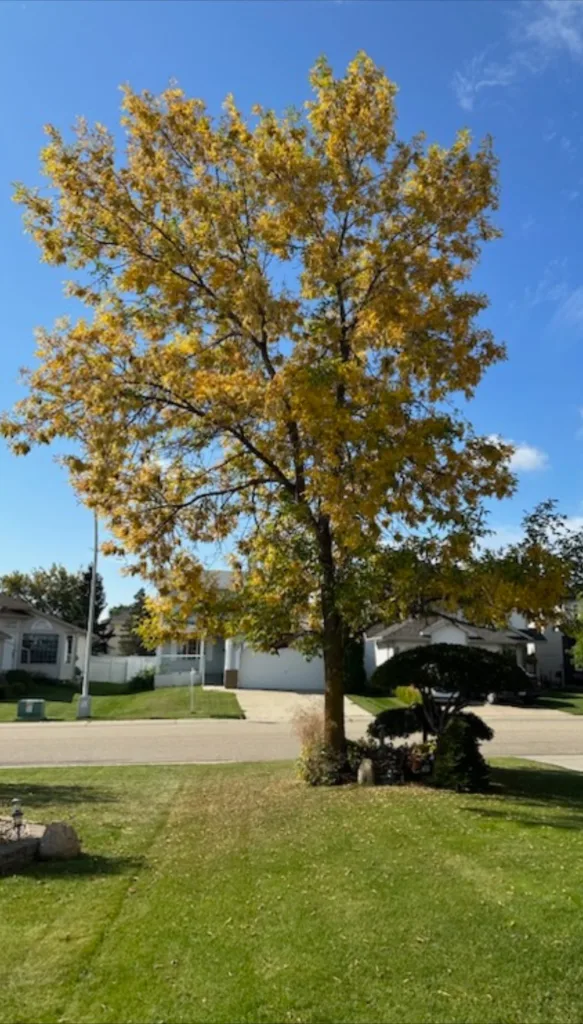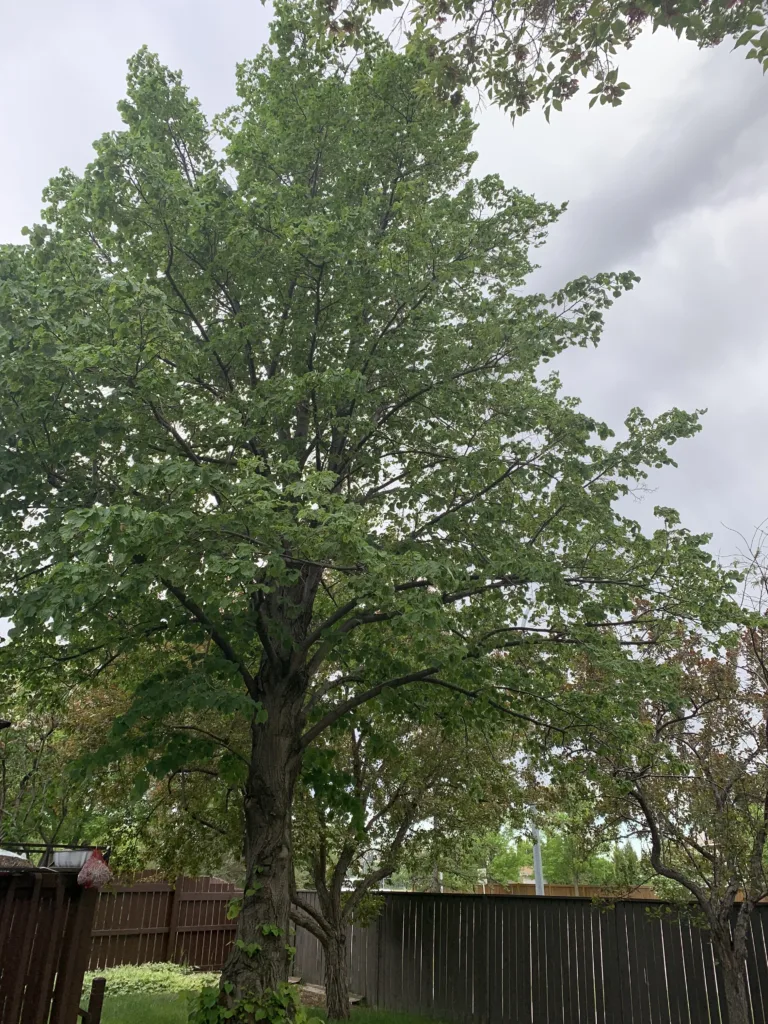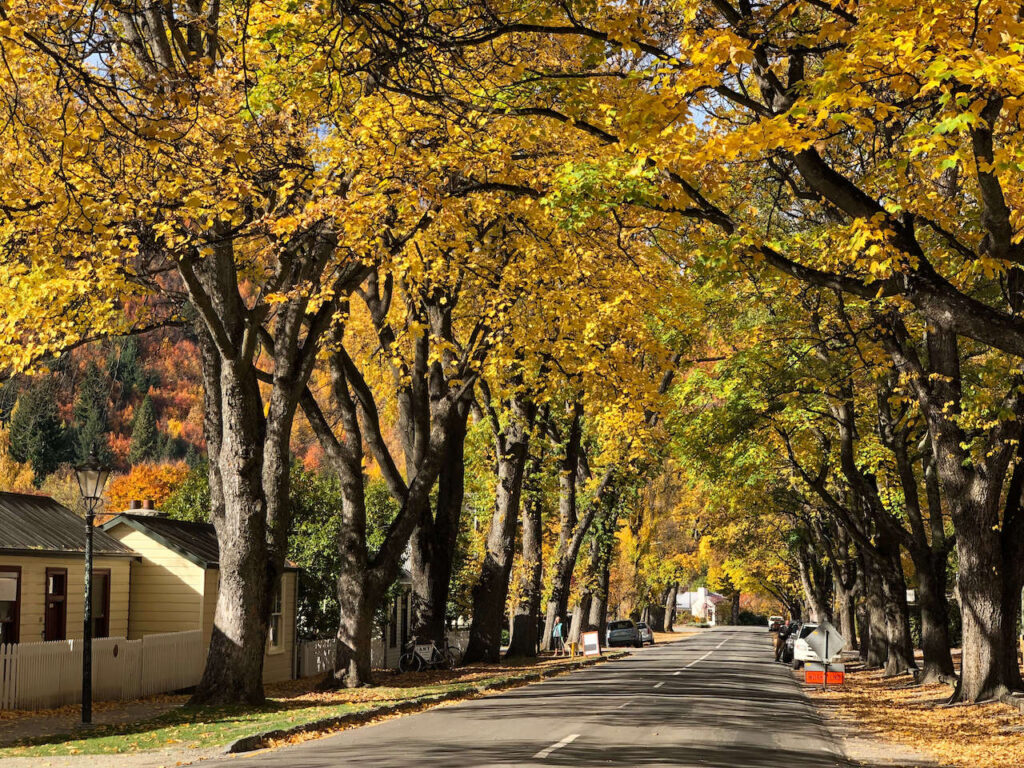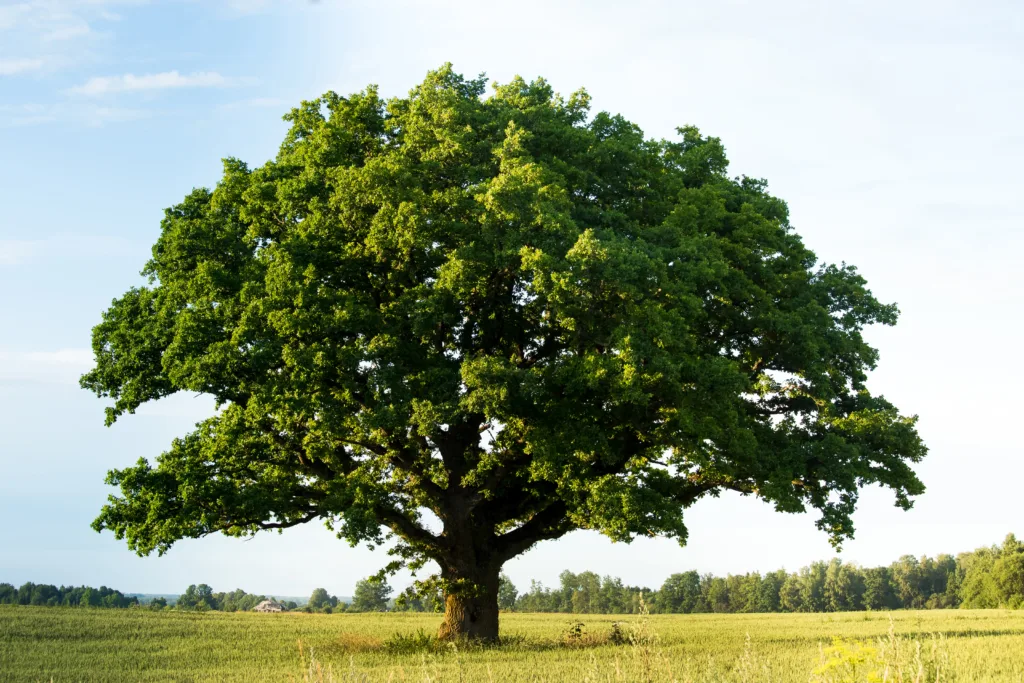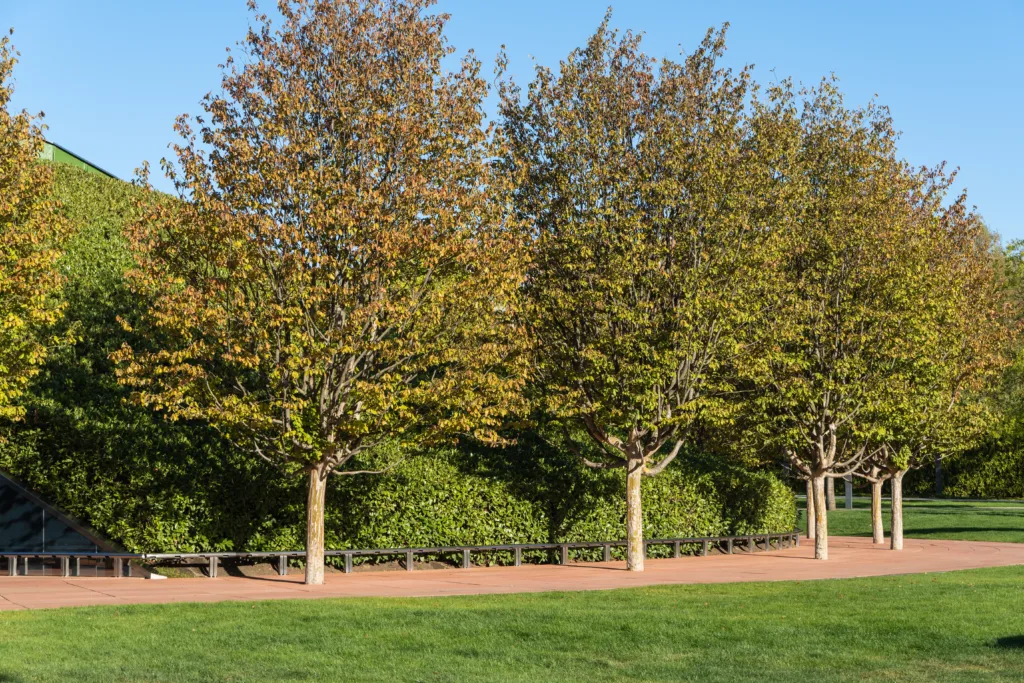A large, stately trees are a timeless and wise investment for your property. They offer years of cooling shade, distinctive charm, savings on energy bills, and a boost to your home’s value. Selecting the right tree is critical to ensure generations of enjoyment.
Norway Maple
Why its great:
- Ads an uncommon touch to your yard
- Brings the classic large maple leaves and resplendent autumn displays to your property
- One of the faster growing centurion tree species
When people in Alberta pass by a Norway maple, they tend to stop for a closer look. They bring a distinctive coastal feel that seems somewhat exotic in Alberta sea of elms and ash trees. Known for their hardiness and adaptability, the Norway maple thrives in various environments, making it a reliable choice for urban areas. It offers generous shade with its broad canopy and boasts attractive fall color as the seasons change.
Hackberry
Why it’s great:
- Similar growth habit, durability, and long life of elm, without the disease issues and burning restrictions
- Significant bird habitat traits
- Shade and poor soil tolerant
With its rugged gray bark etched in distinctive ridges and a broad canopy dappling the ground with sunlight, the hackberry tree adds a touch of understated elegance to any landscape. This resilient beauty offers generous shade, attracts birds with its sweet berries, and thrives in a multitude of environments. If you’re searching for a low-maintenance tree that echoes the classic shade-giving form of the elm, yet boasts remarkable disease resistance, the hackberry might just be the perfect choice.
Green Ash
Why its great:
- Extremely hardy. Pollution and road salt tolerant
- Fast growing (up to 2′ per year
- Generally fewer intrusive surface roots
The green ash, sometimes called red ash or swamp ash, is a much-loved tree in North America, especially in the colder hardiness zones. Though not the longest life estate tree (~60 years), with its fast growth, vibrant fall color, and remarkable adaptability, it’s a popular choice for landscapes, parks, and urban settings.
*Note- While green ash is a valuable tree in the landscape, it’s important to be mindful of potential challenges. Its dense shade can make it difficult to grow other plants underneath. Proper selection and placement are key to enjoying this tree for years to come.
Linden
Why its great:
- Very fragrant, long lasting, honey fragrant flowers (One of the few large long life trees with fragrant flowers)
- Stable uniform shape requires little maintenance
- Typically no intrusive surface roots
- Very long life and hardy
When you’re walking through a park or along a boulevard in July and that unmistakable honey-like aroma washes over you, you know a linden is at work. Their low maintenance growth habit and durability have made them an enduring staple in parks for centuries. Commonly used by European nobility in some of the first public parks and landscapes.
*Note- Lindens are typically very slow growing. Putting on just. couple inches of new wood each year. This is partly how how single specimen is able to endure for hundreds of years.
American Elm
Why its great:
- Unequalled umbrella like canopy shape
- Very hardy and long life (pollution and salt tolerant)
- Sturdy durable wood (less broken limbs)
The tree that requires no introduction, but surely deserves one. The mighty elm is an unparalleled large estate tree. If you were to design a large urban tree and could choose any characteristics you could imagine, your creation would likely come up short of the timeless elm.
Bur Oak
Why its great:
- Extremely long life
- Uncommon in Alberta makes them a conversation piece
- Stunningly beautiful year round
The bur oak is another tree that’s rightfully earned a ubiquitous position on lists of noble trees. A shockingly rare site in the Alberta landscape; we would love to see this tree grace (dominate) the landscape more frequently. Known for their massive size, extraordinary longevity, and distinctive beauty. If you have the space, a bur oak offers generations of natural splendour and rich history.
Ironwood
Why Its Great:
- Nearly indestructible (shade, dry, poor soil)
- Small uniform size typically requires no maintenance
True to its name; this tree is as hardy as a crowbar. With some of the strongest wood in North America, no disease or pest issues, preference for dry soil, and a low maintenance growth habit; this is the perfect specimen tree for the set it-and forget it, home owner.
Though its hops-like flowers aren’t the most radiant and colourful, its unique exfoliating bark and wildlife appeal (birds and squirrels are sure to frequent) more than make up for it!
Featured On:
Consumer choice award for Northern Alberta tree services 2022 and 2023!


